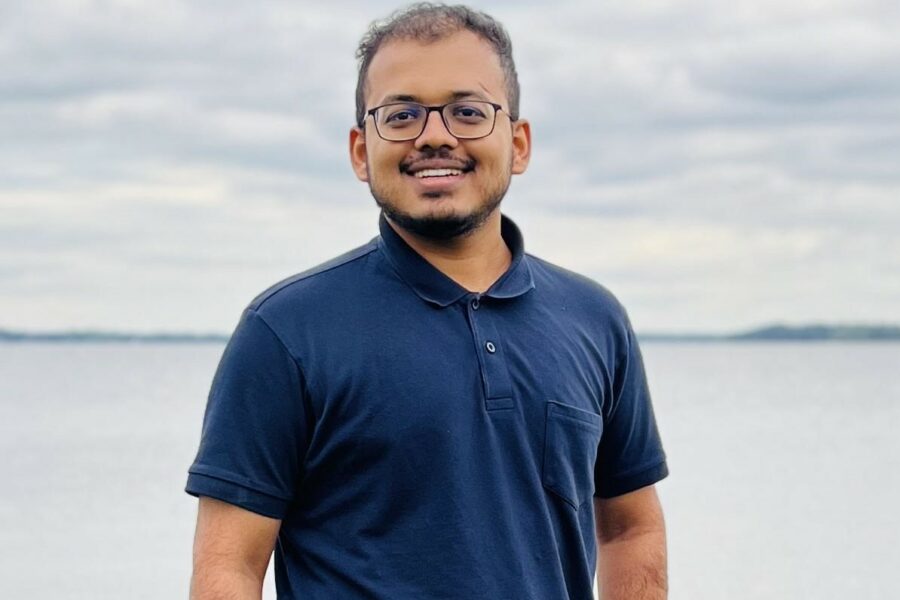
Which program did you participate in and when?
I am an international student hailing from Proddatur, Andhra Pradesh, India. I got admitted to the accelerated (non-thesis) master's program in Cartography and Geographic Information Systems (GIS) in Spring 2022 and graduated in Fall 2023.
Could you tell us a little bit about your education and career path?
I completed bachelor’s in petroleum engineering from Vignan’s University (India). During bachelor’s, I received the gold medal for academic excellence and the best outgoing student award for overall program performance. Later, I joined a multinational company, Larsen & Toubro Infotech (now LTIMindtree), as a Geodata analyst and worked for two years. I realized neither did I grow vertically in the role, nor did I earn any marketable skills that would help me continue my career without upskilling. Therefore, I started exploring master's programs across the globe that improve my computer literacy and develop industry relevant skills. The University of Wisconsin – Madison GISP Program offers a broad set of skills for the best value.
What is your current job? (Or, what future job are you aiming for or have lined up?)
I landed with an opportunity to work with the US Department of Energy's National Renewable Energy Laboratory (NREL) as a Geospatial Data Science Researcher – II starting Feb 2024.
In what ways did your experience with GISPP prepare you for and enhance your career?
GISPP marked the beginning of geospatial career as a full-stack GIS developer. Before GISPP, I needed to gain more background in programming, databases, and cartography. The program aided me in developing solid foundations in GIS and cartography, and advanced courses like Advanced Geospatial Computing and Interactive Cartography deepened my understanding of GIS-driven applications and bigdata systems. The program also helped me to develop an extensive portfolio to showcase my skillset to recruiters.
What advice would you give current students?
The advice I would like to provide for the current students is to challenge themselves with their final projects. Final projects are made part of the curriculum to push the limits of what's learned in the classroom. For instance, you might never pursue a course that exclusively teaches us to map our Moon. However, you can take up this challenge, take the help of TA and Professor, and add the skill of interplanetary cartography. Therefore, if you are serious about landing a job in the GIS sector or Cartography (data journalism), don't hesitate to challenge yourself.
Favorite memory of GISPP?
My favorite memory of GISPP is after class discussions on cartography with Professor Bill Gartner. These discussions helped me to develop insights into cartographic. Another favorite memory is receiving the Barbara Petchnick award for graphic design during the 2022 – 2023 academic year for my project "Understanding Mars: The Goldilocks Planet."

Is there anything else you’d like to share with program staff or prospective students about your experience?
The Department of Geography is one of the campus's friendliest and most amicable departments. Department staff are always highly cordial. I would like to personally thank Joel Gruley, Marguerite Roulette (Mogi), and Jaime Martindale for answering my queries regarding the program and facilities available on campus. Furthermore, UW-Madison is a land of opportunity for GIS enthusiasts. There can be GISP programs that are more advanced and thorough than what's available at UW-Madison. However, I can assure that no program could match the combination of a comprehensive experiential learning environment with amicable staff and knowledge-worthy professors and ample on-campus project opportunities to work on, makes UW-Madison a remarkable institute for GISPP.